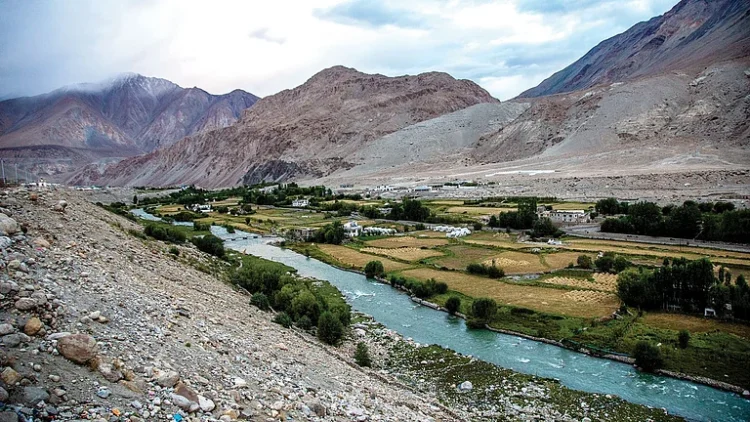In a continued act of water aggression, India has initiated work on four new dam projects in the Ladakh region of Indian illegally occupied Jammu and Kashmir (IIOJK) with the aim of obstructing the flow of the Indus River.
This alarming revelation was made by renowned water expert Engineer Arshad H. Abbasi in a letter addressed to United Nations Secretary-General António Guterres. The letter states that India is developing a master plan for 10-megawatt hydroelectric power projects in Achinathang, Sanjak, Pharphila, Batalik, and Khaltse in the disputed territory of Ladakh.
These projects not only violate the Indus Waters Treaty but also raise serious concerns regarding the reduction and control of water flow into Pakistan. Abbasi observed that the real objective behind these projects appears to be the provision of heat and energy to Indian troops stationed in the glacial regions of Siachen, while the impoverished and neglected local population of Ladakh continues to suffer in harsh winter conditions.
The water expert noted that under the Indus Waters Treaty, India is permitted to use up to 0.25 million acre-feet of water in Ladakh for general and power storage purposes. However, India has already violated the agreement by constructing the 45MW Nimoo Bazgo and the 44MW Chutak hydropower plants in the region—both of which are being used for military needs.
In his letter, Abbasi stressed that India’s actions are part of a ruthless attempt to destroy the ancient and rich Indus Valley Civilization. He urged the United Nations to take immediate and effective steps to restore the Indus Waters Treaty to its original spirit.
Meanwhile, international reputed journal ‘The Diplomat’ has warned India that any move to suspend the Indus Waters Treaty could provoke China into restricting the flow of the Brahmaputra River. The report highlights that the Brahmaputra supplies 30% of India’s total water and accounts for 44% of the country’s hydropower potential. The publication reminded India that China is already constructing massive dams on the Brahmaputra.
It is worth mentioning that World Bank President Ajay Banga had earlier clarified that the Indus Waters Treaty cannot be unilaterally suspended. He stated that while the treaty can be amended or terminated, it requires mutual agreement.






